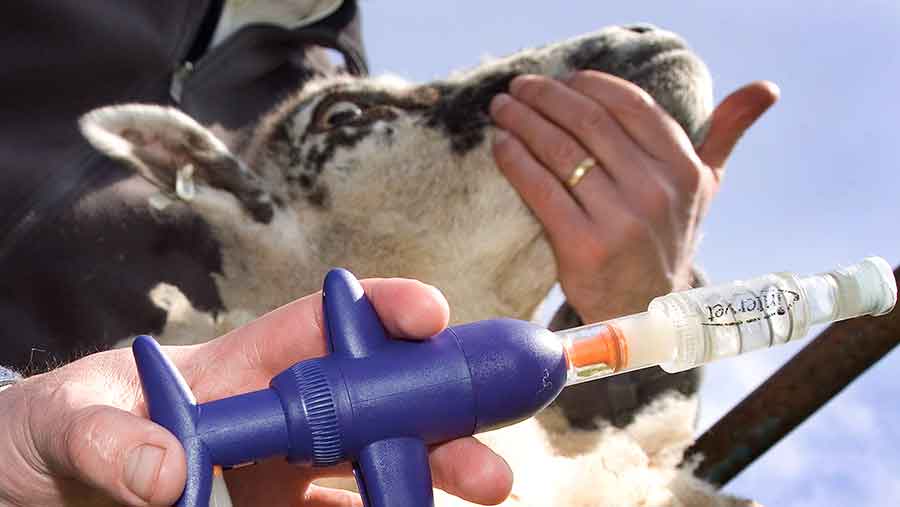Fears grow over bluetongue threat to UK

Livestock farmers are being urged to prepare for a possible bluetongue outbreak after the first case of the virus for four years was detected in France.
NFU livestock board chairman Charles Sercombe said the union and other industry stakeholders were “talking at length with Defra” and Animal Health and Veterinary Laboratories Agency (AHVLA) officials about the likelihood of bluetongue reaching the UK this year.
The first outbreak of bluetongue for four years was confirmed in the Allier region of central France last August.
See also: France redraws bluetongue zones after disease ‘jumps’
Bluetongue factfile
- Bluetongue disease affects sheep, cows and goats, causing painful hooves, lameness and reproductive problems
- Main signs of bluetongue in sheep are ulcers in the mouth, discharge of mucus, drooling from mouth or nose and swelling of the mouth, head, neck and the coronary band
- Bluetongue is a notifiable disease, which means the Animal and Plant and Health Agency (APHA) must be told immediately if a case is suspected
- Animals may also have red skin, fever, lameness and breathing problems
- Cattle are the main carriers of bluetongue and can show some of the same symptoms as sheep, but generally they do not show any signs of the disease
- Bluetongue is carried and spread by midges
Since it was first detected, surveillance work uncovered 95 outbreaks of the virus, prompting movement restrictions and vaccinations for exported livestock.
Defra subsequently assessed the risk of the disease reaching the UK as low. But the NFU has warned that many variables will increase the threat over the coming months – including rising temperatures, wind direction and vaccination in other countries.
“There is quite strong evidence that with the outbreak in France – and the potential weather situation – it could move to the southern part of the UK in 2016,” Mr Sercombe told an NFU Council meeting at Stoneleigh, Warwickshire, on Tuesday (19 January).
Some 87 cattle farms were worst affected in the French outbreak, with the virus also hitting four sheep and beef farms and four sheep farms. Mr Sercombe said it was important that vaccine was readily available for UK farmers to use before cattle were turned out this coming spring.
“We are working behind the scenes to encourage vaccine production to make it available for members to use,” he added. Farmers would have to make their own decision about whether to vaccinate livestock, but it was incumbent on the NFU to ensure vaccine was available.
Like the UK, much of Europe has been experiencing an unseasonably warm winter. Last month, Defra’s international disease-monitoring team said mild weather meant the continual slow spread of the virus in France was “no particular surprise”.
Previous bluetongue outbreaks in the UK have seen vaccine costs subsidised by Defra. But take-up among producers was lower than expected, leaving the government with a hefty bill and unused stocks. Mr Sercombe said the industry would have to pay its own way this time around.
